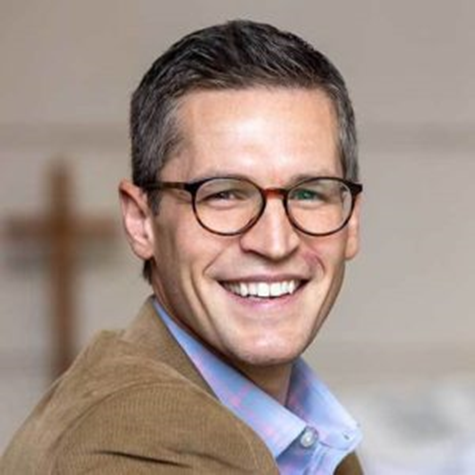I’ll be honest, I wasn’t a model student in my science classes. I was uninterested in dissecting dead frogs during biology. In chemistry, I “borrowed” notes from my classmates to make it through each experiment. Although, I did enjoy an earth geography class in college for its reputation as an easy course.
I wish I had paid more attention in science class, because science and leadership are related.
Each August, Resurrection partners with the Global Leadership Network as a host site for the Global Leadership Summit. The GLS is a dynamic, two-day event gathering leaders across the globe to learn, share ideas and stories, and to hear from a diverse slate of leading experts from a variety of fields and backgrounds. Each year, I walk away having learned something. Last week, I began sharing some take aways and key learnings here in my posts.
Today, I’m returning to Vanessa Van Edward’s discussion about the science of leadership. Her question was: Do leaders think differently? To which she replied, emphatically, yes!
In fact, research has shown a 92% ability to predict if you can lead effectively. Brain scans prove the brains of leaders operate differently. Effective leaders excel at emotions, which I find fascinating. Effective leaders don’t just focus on logistics, nuts and bolts, or the budget. Effective leaders also focus on connection, emotions, and emotional intelligence.
Here’s the best news, we can learn to lead better based on scientific research and emotional intelligence! In short, better leadership results from better connections.
Van Edwards highlighted 3 levels of connection based on research by Dan McAdams. The three levels of connection include:
Level 1 – General Traits
This level of connection often resides at the surface level of communication. For example, you might talk about your occupation, hometown, or family. It’s walking down the hallway, passing a coworker, and asking the question, “How’s it going?” Their likely response, “Oh, I’m fine.” It’s impossible to really connect with someone at level one.
Level 2 – Personal Concerns
At the second level, there’s more interest in the personal aspects of other people. You begin to understand someone’s goals, dreams, visions, concerns, and frustrations. At this level, a chemical reaction occurs as dopamine is released in the brain.
Van Edwards suggested asking these questions to form personal connections: “What was the highlight of your day? What personal passion project are you working on? Have anything exciting coming up in your life? Be a leader with the very first question that you ask. You are gifting people when you ask good questions.”
Level 3 – Self Narrative
The third level relates to the story we tell about ourselves to ourselves and others. The story we tell helps us make sense of our purpose and provides meaning.
You might tell yourself one of the following three self-narratives. The “hero” narrative self-talk suggests someone can overcome obstacles, mistakes, and that anything is possible with hard work. The “healer” narrative self-talk suggests life is well spent in service to others through giving and compassion. The “victim” narrative self-talk suggests obstacles cannot be overcome, and as negative circumstances impact someone, they cannot overcome the challenges. Each of these self-narratives creates cycles of mistakes, misunderstandings, and challenges.
To find your self-talk/self-narrative, Van Edwards suggests asking yourself one question: Am I lucky? How you respond to this question says a lot about your perspective and approach to life.
When we interact at the third level of communication, we learn a lot about ourselves and others. Here are a few level-three questions: What’s something most people don’t know about you? What forces shaped your personality and made you who you are? What’s the proudest moment of your life?
I’m going to ask my team these questions this week. Why don’t you try them with your colleagues, family, or friends.

Joshua Clough served as Location Pastor for Resurrection Overland Park. He completed his doctorate in Practical Theology and Leadership at Fuller Theological Seminary. He runs marathons, ultra-marathons, and because he grew up in Seattle, drinks a lot of coffee.